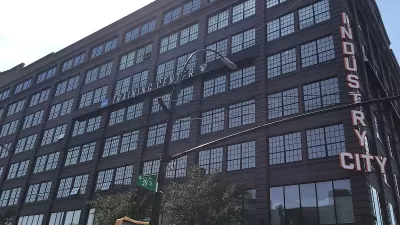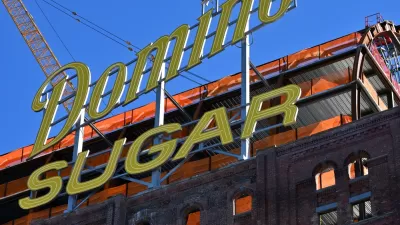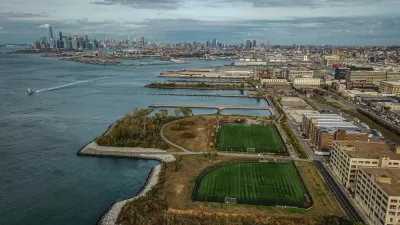Residents are arguing that a Williamsburg development would negatively affect the neighborhood. But it’s a grassroots effort to protect the status quo in a neighborhood where gentrification benefited them.

"Opponents of a rezoning that is needed to allow a big new residential development called River Street, on the Williamsburg waterfront, are making some of the exact same arguments used by foes of a 2005 rezoning in the same Brooklyn neighborhood," writes Steve Cuozzo.
The site is currently zoned for industrial, and wealthy residents in the area want it to stay that way. They say that the proposed development would affect home values, cause overcrowding, and obstruct views.
But Cuozzo points out that many of these residents opposing River Street benefited the 2005 rezoning that brought 12,000 new homes to the area and spurred gentrification.
"Fair scrutiny and community input are fair. But while rezonings are rightly drawing longer and harder looks than in the past, it is worth keeping in mind where the harshest looks are coming from. At River Street, they aren’t from the poor. As in many other contexts, too often NIMBY-ism is all about the boutique preferences of the well-heeled and comfortably entrenched," says Cuozzo.
FULL STORY: Yet another zoning fight that’s all about protecting the rich

Alabama: Trump Terminates Settlements for Black Communities Harmed By Raw Sewage
Trump deemed the landmark civil rights agreement “illegal DEI and environmental justice policy.”

Study: Maui’s Plan to Convert Vacation Rentals to Long-Term Housing Could Cause Nearly $1 Billion Economic Loss
The plan would reduce visitor accommodation by 25% resulting in 1,900 jobs lost.

Why Should We Subsidize Public Transportation?
Many public transit agencies face financial stress due to rising costs, declining fare revenue, and declining subsidies. Transit advocates must provide a strong business case for increasing public transit funding.

Paris Bike Boom Leads to Steep Drop in Air Pollution
The French city’s air quality has improved dramatically in the past 20 years, coinciding with a growth in cycling.

Why Housing Costs More to Build in California Than in Texas
Hard costs like labor and materials combined with ‘soft’ costs such as permitting make building in the San Francisco Bay Area almost three times as costly as in Texas cities.

San Diego County Sees a Rise in Urban Coyotes
San Diego County experiences a rise in urban coyotes, as sightings become prevalent throughout its urban neighbourhoods and surrounding areas.
Urban Design for Planners 1: Software Tools
This six-course series explores essential urban design concepts using open source software and equips planners with the tools they need to participate fully in the urban design process.
Planning for Universal Design
Learn the tools for implementing Universal Design in planning regulations.
Smith Gee Studio
Alamo Area Metropolitan Planning Organization
City of Santa Clarita
Institute for Housing and Urban Development Studies (IHS)
City of Grandview
Harvard GSD Executive Education
Toledo-Lucas County Plan Commissions
Salt Lake City
NYU Wagner Graduate School of Public Service





























